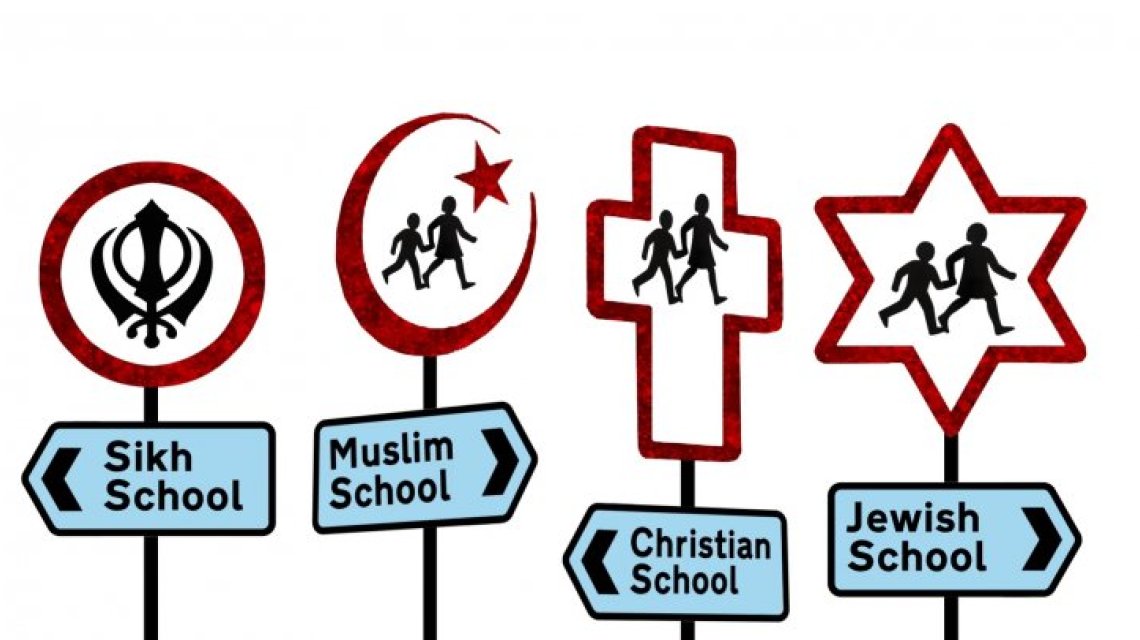Faith schools can never be truly inclusive
A Jewish faith school was recently praised in The Observer for teaching about 'diversity and tolerance'. But faith schools can never do this as well as schools without a religious character, says Megan Manson
By their very nature, faith schools are discriminatory, exclusionary and divisive. It therefore makes me frustrated and bewildered whenever I see a particular faith school getting applauded for somehow being 'inclusive'.
The latest publication to do so is The Observer. On Saturday it ran a piece praising Simon Marks Jewish primary school, a state-funded faith school in Stoke Newington, for teaching about "cultural diversity and tolerance". The piece paints a rosy picture of the school as a place that "unites all faiths", with links to a nearby Islamic school and several 'ultra-orthodox' Jewish schools.
But The Observer glosses over a number of uncomfortable facts about the school.
As a voluntary aided school, Simon Marks Jewish primary makes full use of its exemptions from equality law. It operates a discriminatory admissions policy, prioritising children "who meet a religious practice test based on guidelines from the Chief Rabbi" over all others, including looked-after children and those with acute medical needs who do not follow Judaism.
Presently about half the children at Simon Marks are not Jewish. This is probably due to undersubscription; until recently the school struggled with academic standards. But if its standards improve and it becomes oversubscribed due to popularity, it will inevitably grow less diverse as priority is given to children with a "Certificate of Religious Practice".
Even if the school had an equitable admissions policy, other aspects of school life aren't inclusive at all.
One example is the uniform policy. The school website says, without a trace of irony, "As an inclusive, modern orthodox Jewish school, we expect all children to wear all aspects of the uniform, including those items associated with Jewish religious practice." This means all boys, regardless of their own religion or belief, must wear a kippah (skull cap) and tzitzit (ritual tassels).
It is particularly ironic that Simon Marks primary's headteacher says the school's work is to 'break down stereotypes', for example that "all Muslim women wear hijabs and all Jewish men wear black coats and have curly sidelocks". And yet her school forces all boys to wear kippah – despite the fact most Jewish men do not routinely wear them.
Another example is the school's policy on food. The school bans pupils from bringing in any food or drink that isn't classified as kosher. Furthermore, it says: "As an inclusive school, we request that parents and carers respect Jewish dietary laws when organising out-of-school parties to ensure that the dietary requirements of observant Jewish children are met."
So Simon Marks Jewish primary doesn't merely impose kosher rules on all pupils, regardless of their personal beliefs, within the school. It even expects families to adhere to these rules when planning parties outside the school.
Similar rules are imposed regarding out-of-school family activities on the Sabbath or festivals: "As an inclusive Jewish school, we ask all parents and carers to refrain from organising class parties on Shabbat or festivals to ensure that observant Jewish children will be able to participate."
They also request "that school governors are not contacted during Shabbat or festivals."
And finally there is the Jewish religious ethos that forms an inescapable part of life at the school. According to The Observer, pupils "repeat Jewish blessings through the day", have "have two hours of Jewish studies each week", and "learn about other faiths 'through a Jewish lens'".
Parents have the legal right to withdraw their parents from acts of worship and religious studies. But doing so can be extremely difficult at a faith school and entails the risk of alienating pupils from their peers. And the children have no legal right to withdraw themselves.
What really makes me frustrated about faith schools like this one getting praised for their "diversity and tolerance" is that most schools in the UK do this by default – and they do it better.
Two-thirds of our schools do not have a religious character. As a result, they do not have admissions policies that discriminate against pupils based on their family's religion. They do not impose religious codes on children or their families. And they do not teach any aspect of the curriculum through a particular 'religious lens'.
Yet these schools rarely seem to get the same praise that faith schools get for having, say, partnerships with other faith schools, or admitting 'token' pupils from different faith and belief backgrounds.
If we want all schools to promote respect, cohesion and tolerance, including challenging prejudice and discrimination against people based on their religious identity, they need to be run according to these values. That means ensuring all schools are genuinely inclusive of all, regardless of religion or belief. And that means no more faith schools.

No more faith schools
We need inclusive schools free from religious discrimination, privilege or control. Join our campaign.
